Female Nobel trio arrive to meet Rohingya women
Three female Nobel Peace laureates began a weeklong trip to Bangladesh yesterday to meet Rohingya women who were tortured and raped by soldiers in Myanmar before fleeing the country.
"We are going to Cox's Bazar tomorrow [Sunday] and will return to Dhaka in the afternoon on February 27," an official who will accompany the Nobel laureates told UNB yesterday.
During their visit, Iran's Shirin Ebadi, Yemen's Tawakkol Karman and Northern Ireland's Mairead Maguire will assess the violence against the Rohingya women and the refugees' overall situation, according to the Nobel Women's Initiative, a platform of six female peace laureates established in 2006.
They will seek to gain a better understanding of the assistance and protection being provided by the Bangladeshi government and local communities, including the challenges they face.
The trio will also see the role of local and international organisations providing support to the Rohingya women in the camps and elsewhere.
The Nobel Women's Initiative, in partnership with local Bangladeshi women's organisation, Naripokkho, is hosting the delegation to Bangladesh to witness and highlight the situation of refugees and the violence against Rohingya women.
The laureates will spend time in Dhaka and in refugee camps near Cox's Bazar meeting with female Rohingya refugees, Bangladesh government officials, human rights organisations and Canadian and other diplomats.
The delegation builds on more than a decade of work of the Nobel Women's Initiative in the region and with women's rights organizations in Burma.
In an email to The Associated Press yesterday, Karman said that she and her colleagues were standing "in solidarity with displaced Rohingya women and calling for Rohingya women's voices to be heard."
She said Rohingya women are twice victimised -- for being Rohingya and for being women -- and "are affected by the ethnic cleansing and are also subject to high levels of sexual and gender-based violence."
"Rohingya women's unique needs are largely unmet in refugee camps in Bangladesh," she said. "Less than 20 percent of displaced Rohingya women who have survived sexual violence have access to post-rape care."
Human Rights Watch has said in a report that Myanmar security forces raped and sexually assaulted women and girls before and during major attacks on villages.
Karman said that "accountability and justice" for crimes against the Rohingya people must be a priority for the international community.
"The refugee problem stems from the crimes against humanity being committed by the Myanmar military and government against the Rohingya," she said in the email.
The laureates will meet Bangladeshi Prime Minister Sheikh Hasina and other officials and volunteers during their trip.
[From UNB, AP]

 For all latest news, follow The Daily Star's Google News channel.
For all latest news, follow The Daily Star's Google News channel. 

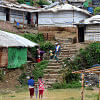
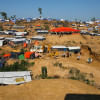
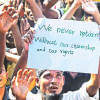
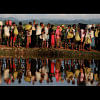
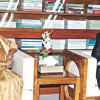

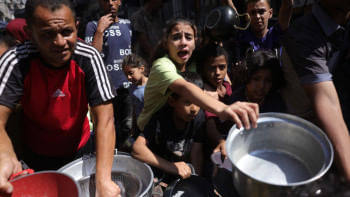
Comments